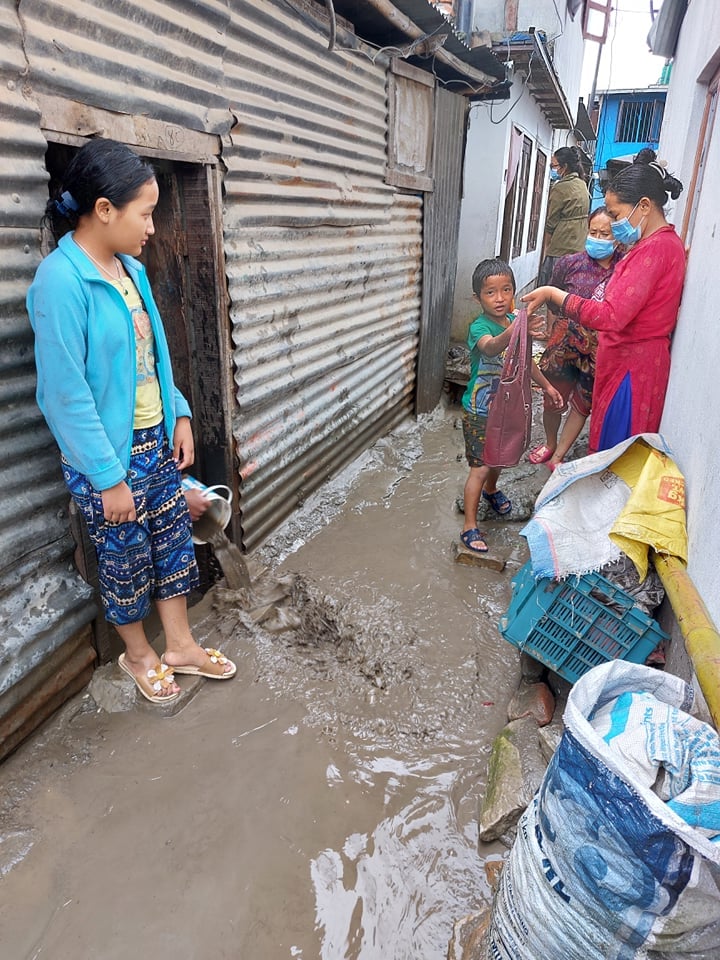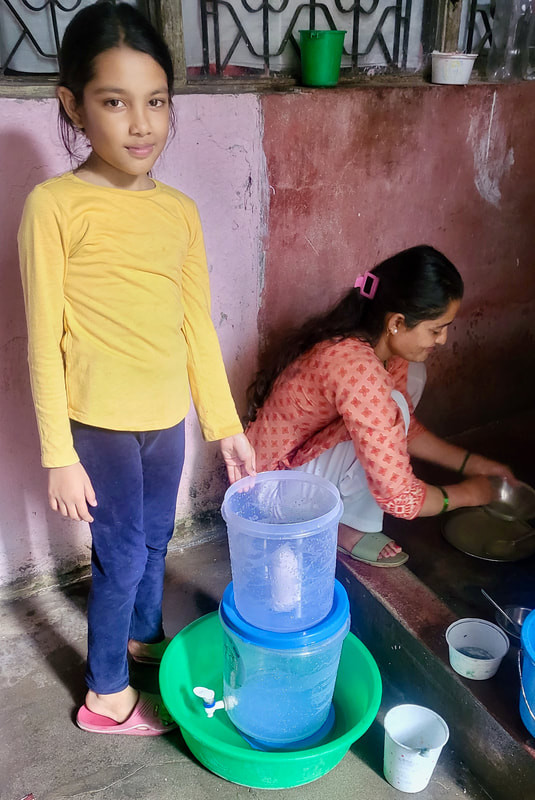|
HIO families living along Kathmandu’s riverbanks experience annual flooding during the monsoon season. Dear Friends, From June to September, the monsoon season in Nepal wreaks havoc on our HIO community. Climate change has made weather extremes more intense. Flash floods and landslides have already caused significant damage in Nepal’s countryside this year, even though the monsoon season was predicted to be drier. The Bagmati River that runs through Kathmandu has overflowed in recent weeks. Slum areas where our girls live have been flooded with raw sewage, ruining bedding, clothing and food. Families have been displaced. Each year since we purchased our Chandra Kala building in 2016, the courtyard has flooded during monsoon season. We worry about children’s lost learning as their teachers scurry about scooping up buckets of dirty water. After one torrential downpour last summer, we imagined capturing the disruptive rainfall and putting it to use. Our Paani for All initiative was born, and with a generous grant from our partners, Friends of Nepal (FoN), it’s now taking shape. Paani means water in Nepali. Our new rainwater collection and recharge system is helping prevent annual scenes like this flooding at our Chandra Kala center in 2018. In February, we built a new rainwater collection and harvesting system at Chandra Kala, designed and installed by the Nepal organization, Smart Paani. They dug a new well that captures overflow in the courtyard and built a system for channeling rainwater from the roof to a new 500 liter tank. This system has enabled us to buy less water from a tanker truck this year, and there has been no flooding yet. What a relief! While the rainwater collection system is solving problems at our learning center, we remain concerned about water security for our HIO families. Urban growth has put intense pressure on the city’s already inadequate water systems. Most HIO families’ homes have no tap water, and if they do, it’s not clean. Many families have relied on dhunge dhara, the hundreds of ancient stone spouts throughout the city that have provided free water at communal taps for centuries. With a shrinking water table, half of the spouts have now run dry. Bottled water is expensive. Some HIO families resort to using gray water for drinking and cooking, putting them at risk for potentially life-threatening health problems like diarrhea, hepatitis, and cholera. Regular outbreaks of conjunctivitis remind us that hand-washing is a vital, but impossible, task in many households we serve. Anjelina and her mother, Kalpana, can now filter water from their tap instead of buying heavy bottles of water and carrying them home for the family to use. Thankfully, the FoN grant also funded a pilot project to distribute Smart Paani water filters to 50 HIO families. Mothers who received them were thrilled. After six months of use, many are finding it easier and cheaper to provide clean water for their families. Mothers and teachers are building their understanding of clean water projects through our women’s empowerment classes and teacher trainings. We’re continuing to monitor the effectiveness of this pilot project as we consider offering filters to all 200 of our HIO families next year.
Water security is an essential component of our family-centric approach to social work in Kathmandu. With many thanks to your kind support, our HIO community is on its way to achieving Paani for All. With deep gratitude — Laura & Ricky
0 Comments
|



